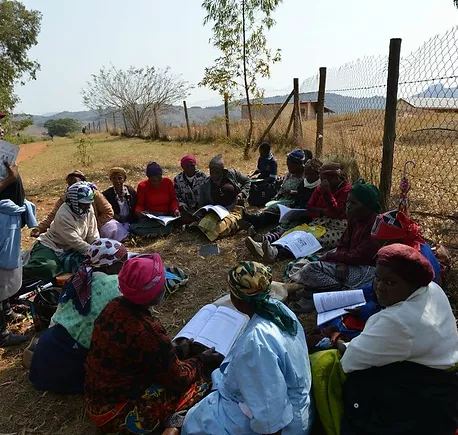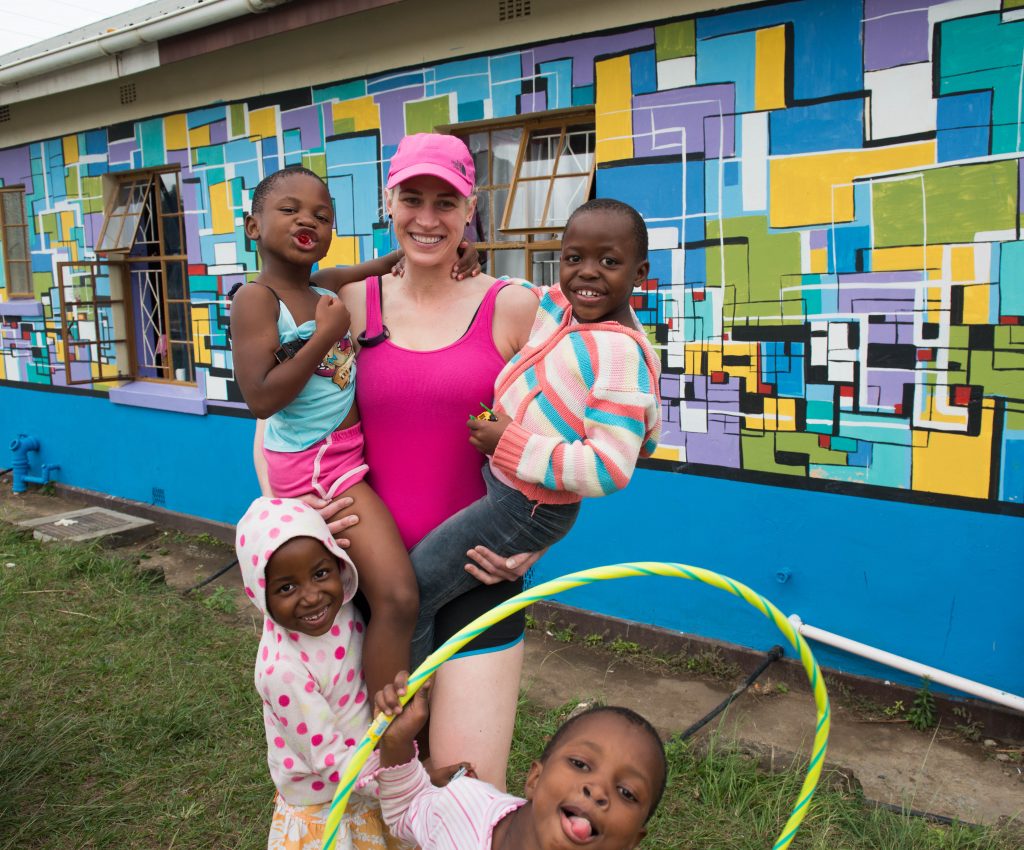The WORTH Program was created and brought to Eswatini (and many other countries over the past 20 yrs) by PACT a US based NGO. We met with PACT and 3 of its’ on the ground partners, who actually put the program into action with their local communities, 2000 women in all. It was a most interesting meeting as they offered us an overview and various perspectives on the workings of the program in practical terms, as well as the “value-added” benefits to the women of these rural communities.
“Microfinance,” is a term bandied about a great world in developing countries. By no means am I an expert, but I think that I do understand a few basic differences between the WORTH program and others that might be offered by KIVA, for example. This is “village banking” and not institutional lending.
The program is one of teaching math and basic banking literacy to women. They learn how to save as a group, save individually, lend, borrow and re-pay with interest, earn interest on their own savings, all within the power of their group of 25 women, friends, families and neighbours.



We traveled to a very rural, remote, poor and drought ridden corner of the country to watch one of the weekly meetings in action. It was fascinating. The strengths of this program as we saw it were: all funded by themselves, “their leadership,” “their program,” “their money,” “their savings,” no other intermediary is involved. All funding in this program goes into the training, paper and books, and support to learn how to run it. This is a powerful empowerment distinction between funding coming from the western world and interest being re-paid to a lending institution, (which also has its place and strengths.)
Along with the money and banking side there are huge side benefits to the group by way of the gathering of the women on a regular basis. Other forms of empowerment, lessons, training and learning are brought the women in these meetings. Such things as: safety for children from all forms of abuse, women’s rights, changing laws that affect women and families, hiv/aids awareness, gender violence action/prevention and also some training for the men who are affected by their changing women’s roles are all incorporated into the group learning.

Additionally, most groups have a “community support fund” that is an obligatory percentage of the weekly funds brought in that goes towards a separate source of funding available to all group members and perhaps the community at large with steering from the group, of course. Situations and issues that might qualify for use of this funding might be: school fees payment for the orphans and the most vulnerable children in their village, emergency personal funding, funeral expenses and any shared community initiatives (ie. could go to support a local school in an improvement project.)
So, the social spin offs to this training, shared financing are a huge part of the additional plusses.
Where the program does not offer training that we would agree is also needed, is in the actual entrepreneurial side of things. These women lack basic skills in business. Additionally, there are areas where we would be amongst the toughest for business, being so remote, dry and sparsely populated. There is a secondary program called Technoserve that can be added to the group once the village banking side is well entrenched and supported by the community.
With the support of one incredible sponsor, we have funding in place to take 250 women who are currently working with Gone Rural, through this program for two years.
A recent development has Gone Rural partnered with Save the Children in a group implementation that is going to train 5,000 Swazi women in the WORTH methodology. For Swazi Kids’ part, we have provided them with the 10% seed capital that was required to even apply for this huge grant out of the European Union. If Swazi Kids had not implemented their first initiative with a cohort of 250 women, Gone Rural would not likely have been able to apply for this grant!





